Best AI tools for< Hpc Cluster Manager >
Infographic
10 - AI tool Sites

Backend.AI
Backend.AI is an enterprise-scale cluster backend for AI frameworks that offers scalability, GPU virtualization, HPC optimization, and DGX-Ready software products. It provides a fast and efficient way to build, train, and serve AI models of any type and size, with flexible infrastructure options. Backend.AI aims to optimize backend resources, reduce costs, and simplify deployment for AI developers and researchers. The platform integrates seamlessly with existing tools and offers fractional GPU usage and pay-as-you-play model to maximize resource utilization.
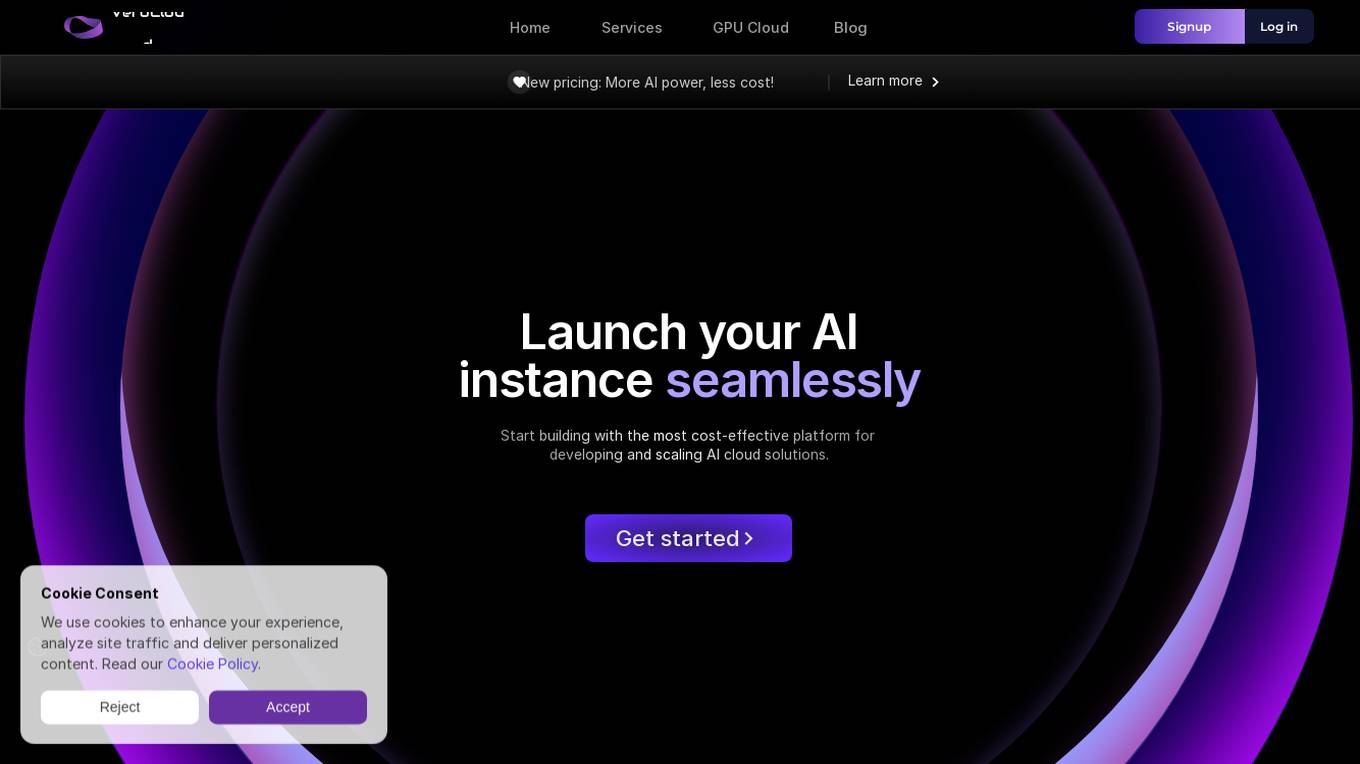
VeroCloud
VeroCloud is a platform offering tailored solutions for AI, HPC, and scalable growth. It provides cost-effective cloud solutions with guaranteed uptime, performance efficiency, and cost-saving models. Users can deploy HPC workloads seamlessly, configure environments as needed, and access optimized environments for GPU Cloud, HPC Compute, and Tally on Cloud. VeroCloud supports globally distributed endpoints, public and private image repos, and deployment of containers on secure cloud. The platform also allows users to create and customize templates for seamless deployment across computing resources.
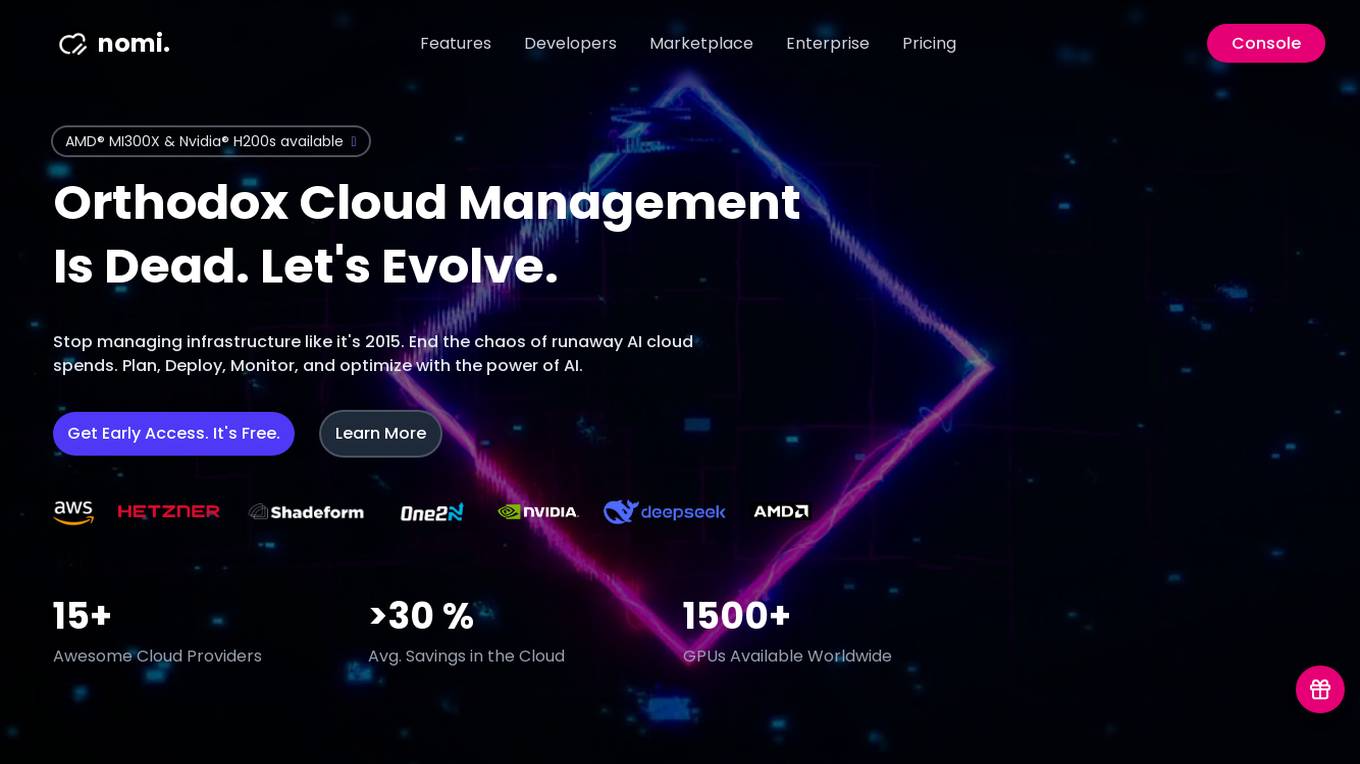
Nomi.cloud
Nomi.cloud is a modern AI-powered CloudOps and HPC assistant designed for next-gen businesses. It offers developers, marketplace, enterprise solutions, and pricing console. With features like single pane of glass view, instant deployment, continuous monitoring, AI-powered insights, and budgets & alerts built-in, Nomi.cloud aims to revolutionize cloud management. It provides a user-friendly interface to manage infrastructure efficiently, optimize costs, and deploy resources across multiple regions with ease. Nomi.cloud is built for scale, trusted by enterprises, and offers a range of GPUs and cloud providers to suit various needs.
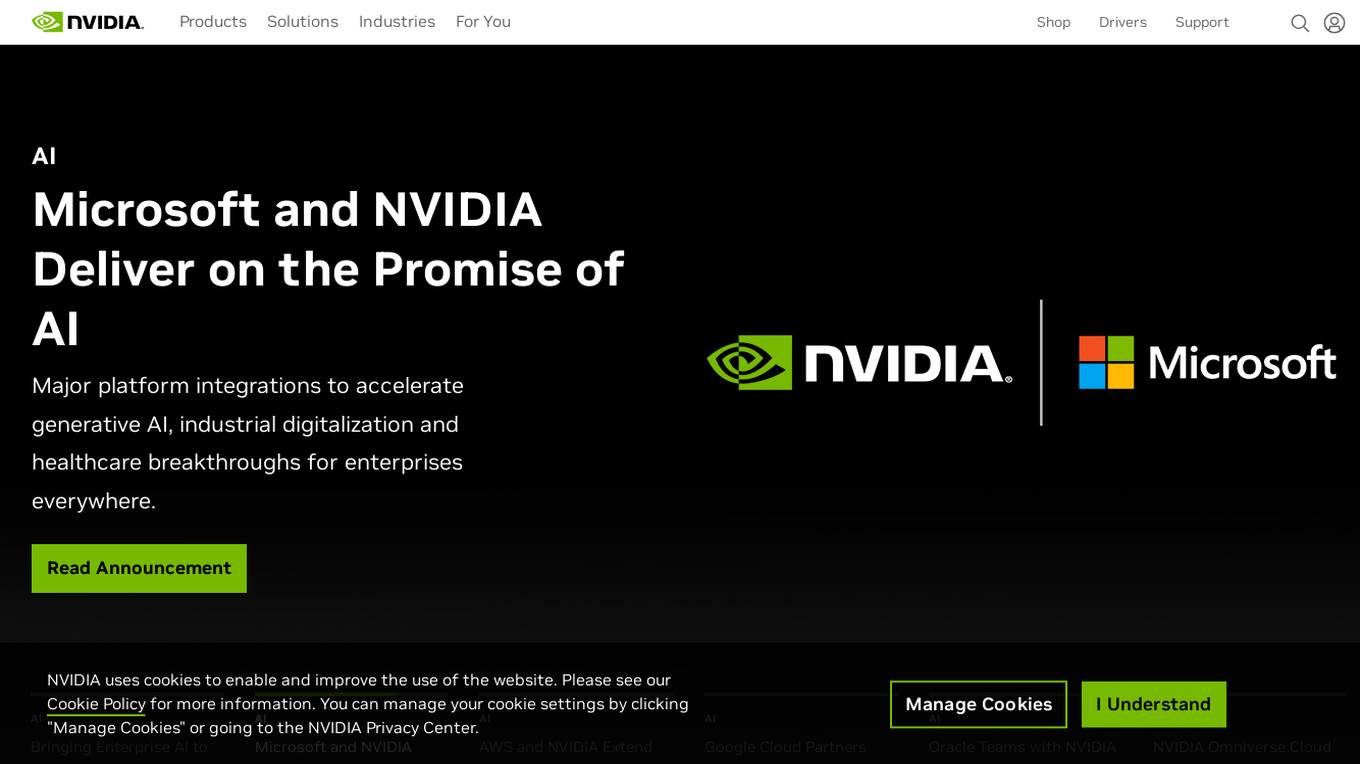
NVIDIA
NVIDIA is a world leader in artificial intelligence computing. The company's products and services are used by businesses and governments around the world to develop and deploy AI applications. NVIDIA's AI platform includes hardware, software, and tools that make it easy to build and train AI models. The company also offers a range of cloud-based AI services that make it easy to deploy and manage AI applications. NVIDIA's AI platform is used in a wide variety of industries, including healthcare, manufacturing, retail, and transportation. The company's AI technology is helping to improve the efficiency and accuracy of a wide range of tasks, from medical diagnosis to product design.
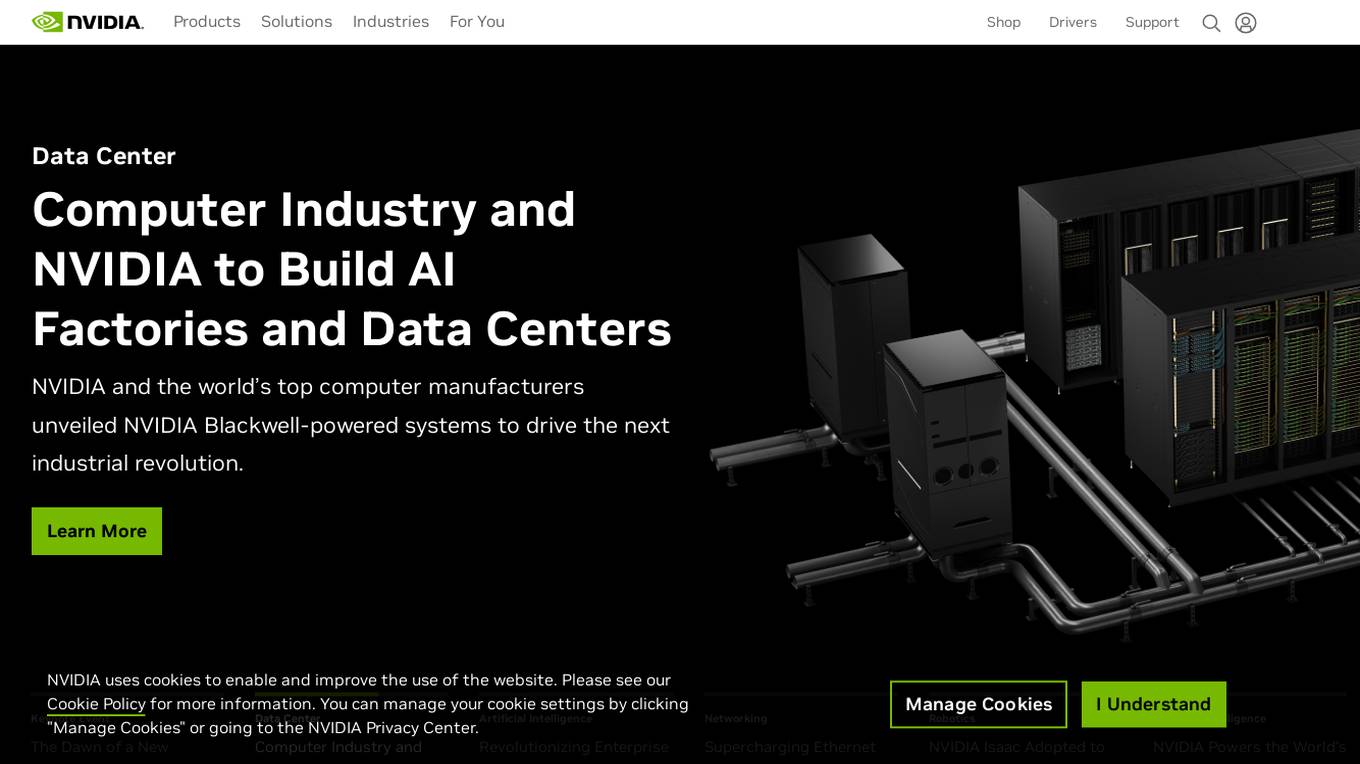
NVIDIA
NVIDIA is a world leader in artificial intelligence computing, providing hardware and software solutions for gaming, entertainment, data centers, edge computing, and more. Their platforms like Jetson and Isaac enable the development and deployment of AI-powered autonomous machines. NVIDIA's AI applications span various industries, from healthcare to manufacturing, and their technology is transforming the world's largest industries and impacting society profoundly.
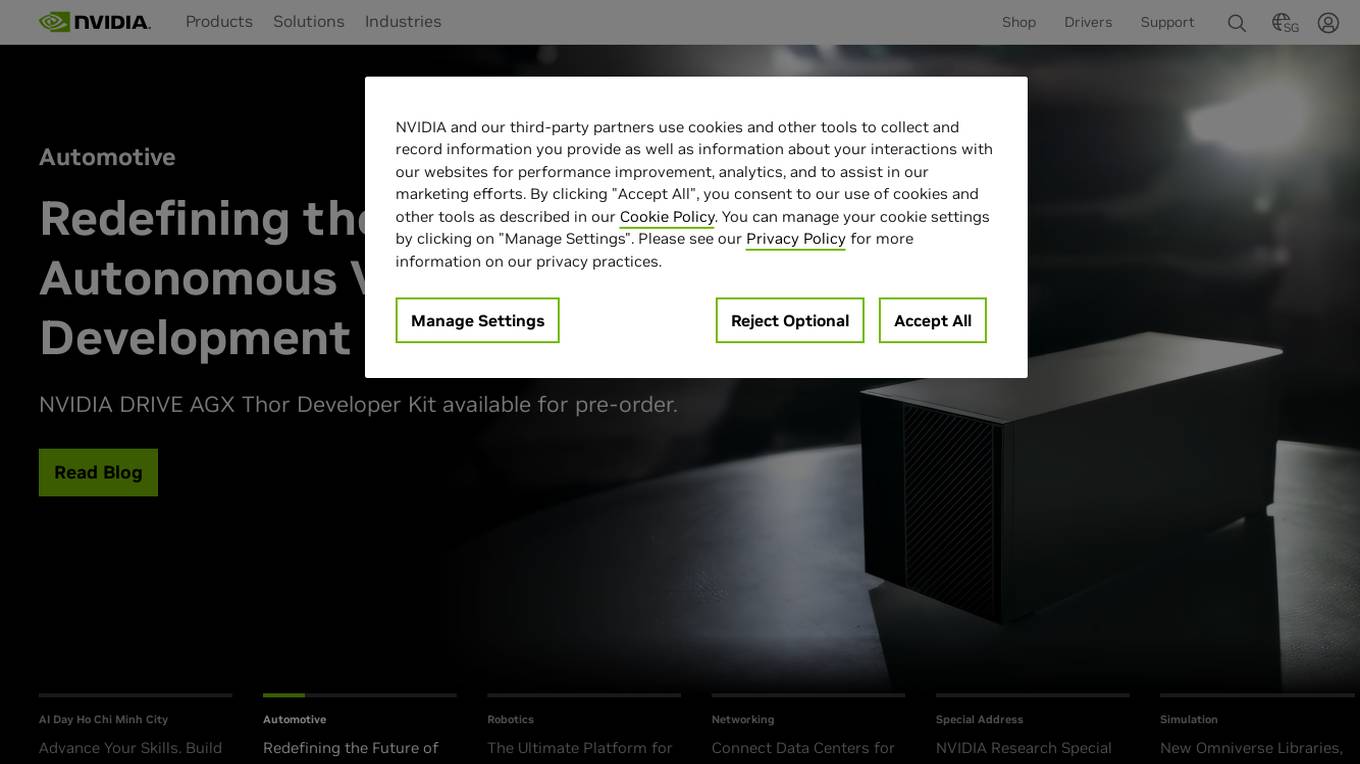
NVIDIA
NVIDIA is a world leader in artificial intelligence computing, providing solutions for cloud services, data center, embedded systems, gaming, and creating graphics cards and GPUs. They offer a wide range of products and services, including AI-driven platforms for life sciences research, end-to-end AI platforms, generative AI deployment, advanced simulation integration, and more. NVIDIA focuses on modernizing data centers with AI and accelerated computing, offering enterprise AI platforms, supercomputers, advanced networking solutions, and professional workstations. They also provide software tools for AI development, data center management, GPU monitoring, and more.
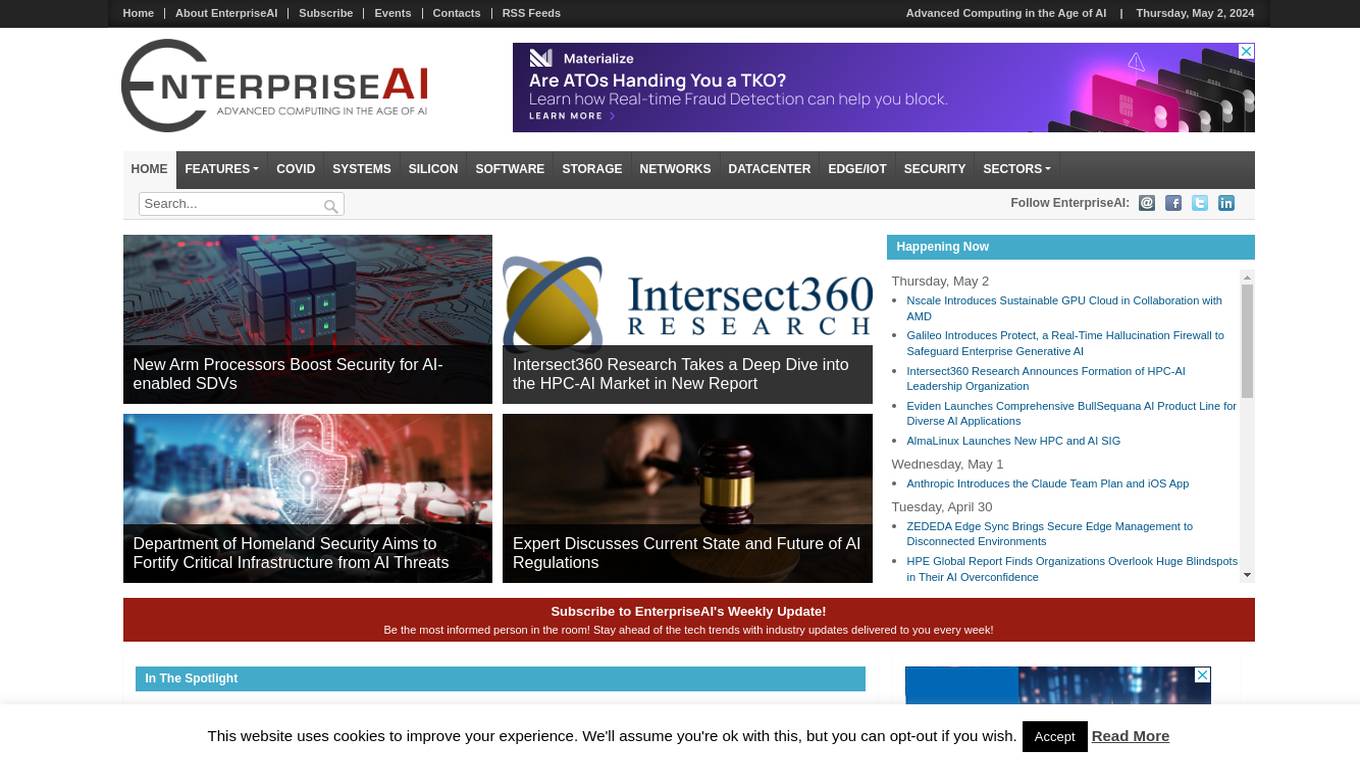
EnterpriseAI
EnterpriseAI is an advanced computing platform that focuses on the intersection of high-performance computing (HPC) and artificial intelligence (AI). The platform provides in-depth coverage of the latest developments, trends, and innovations in the AI-enabled computing landscape. EnterpriseAI offers insights into various sectors such as financial services, government, healthcare, life sciences, energy, manufacturing, retail, and academia. The platform covers a wide range of topics including AI applications, security, data storage, networking, and edge/IoT technologies.
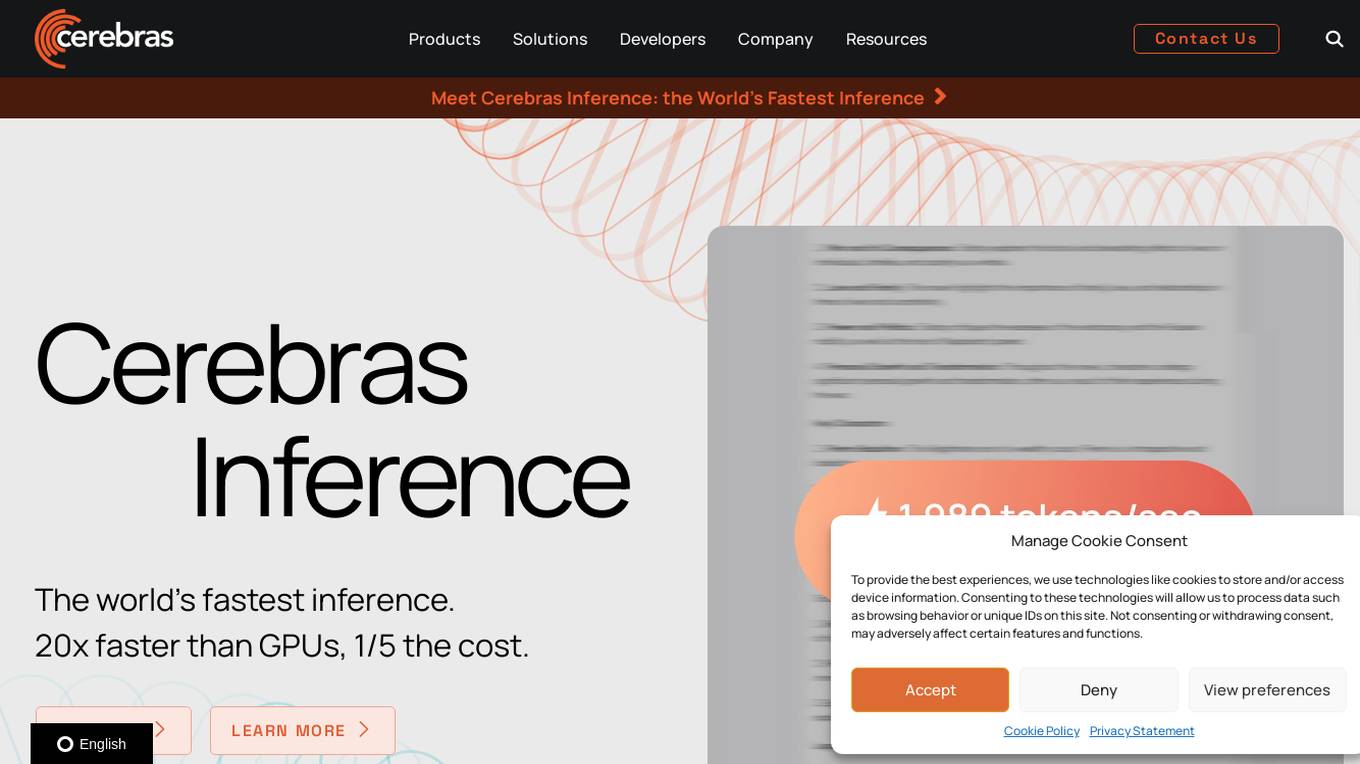
Cerebras
Cerebras is an AI tool that offers products and services related to AI supercomputers, cloud system processors, and applications for various industries. It provides high-performance computing solutions, including large language models, and caters to sectors such as health, energy, government, scientific computing, and financial services. Cerebras specializes in AI model services, offering state-of-the-art models and training services for tasks like multi-lingual chatbots and DNA sequence prediction. The platform also features the Cerebras Model Zoo, an open-source repository of AI models for developers and researchers.
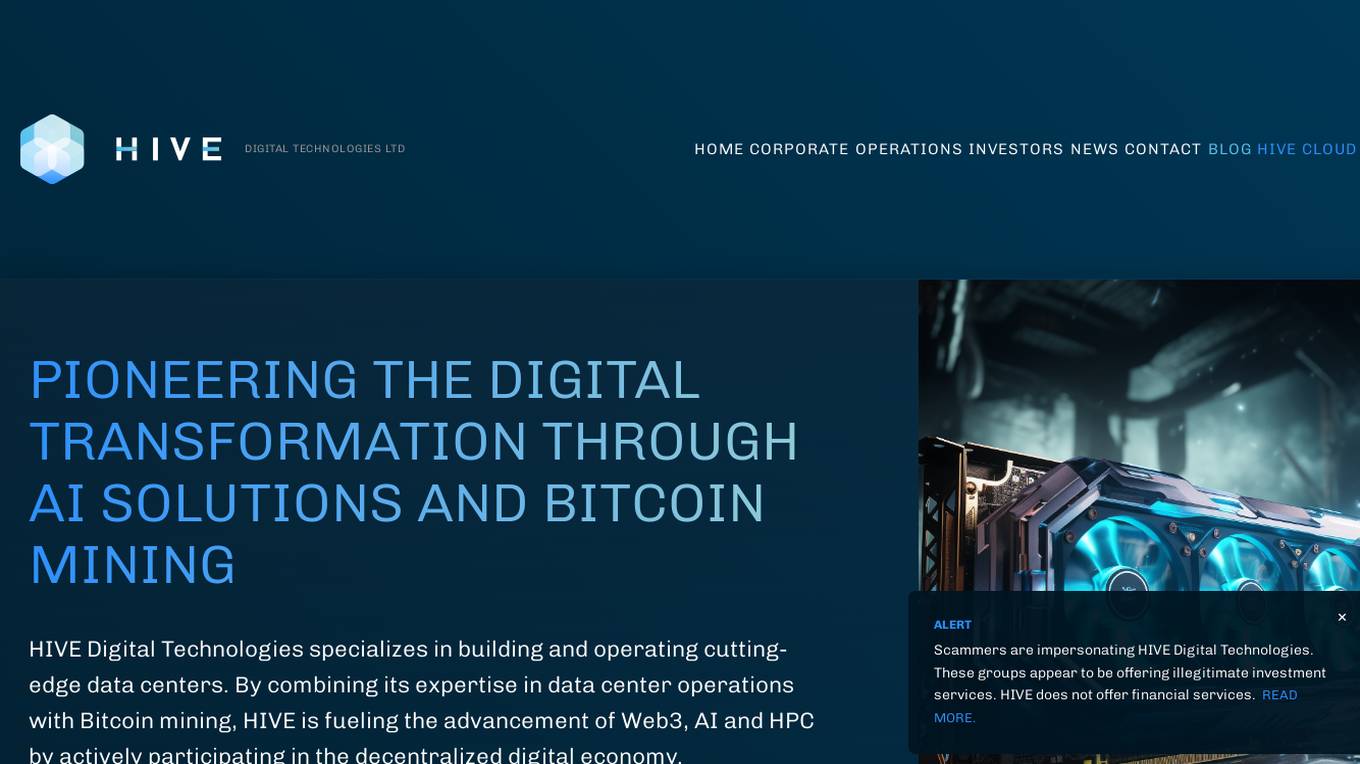
HIVE Digital Technologies
HIVE Digital Technologies is a company specializing in building and operating cutting-edge data centers, with a focus on Bitcoin mining and advancing Web3, AI, and HPC technologies. They offer cloud services, operate data centers in Canada, Iceland, and Sweden, and have a fleet of industrial GPUs for AI applications. The company is known for its expertise in digital infrastructure and commitment to using renewable energy sources.
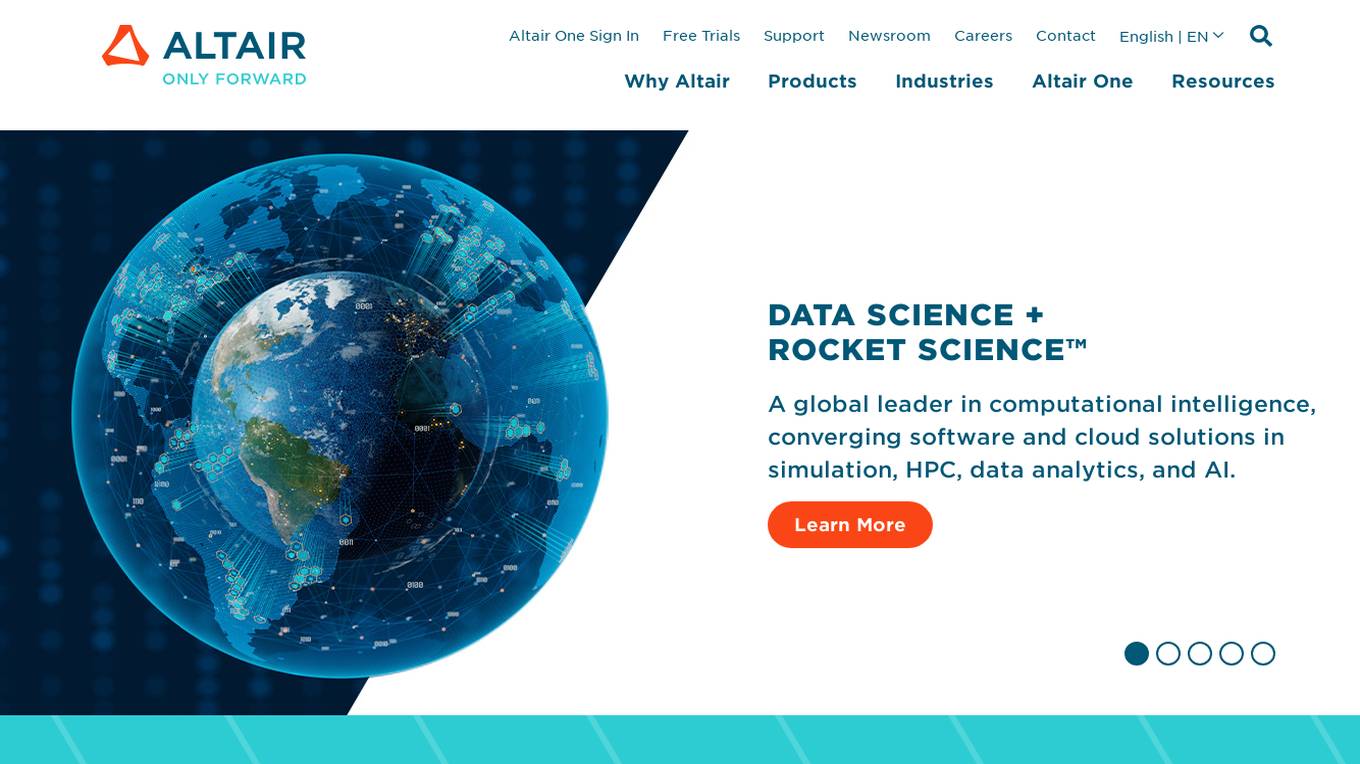
Altair
Altair is a global leader in computational intelligence, offering software and cloud solutions in simulation, HPC, data analytics, and AI. The platform provides advanced technology for accelerating AI adoption, powering engineering processes, and enabling sustainability solutions across various industries. Altair's products and platforms cater to diverse sectors such as aerospace, automotive, healthcare, and more, with a focus on digital twin technology, generative AI, and cloud computing. The company also hosts events, webinars, and training programs to support users in leveraging their tools effectively.
1 - Open Source Tools
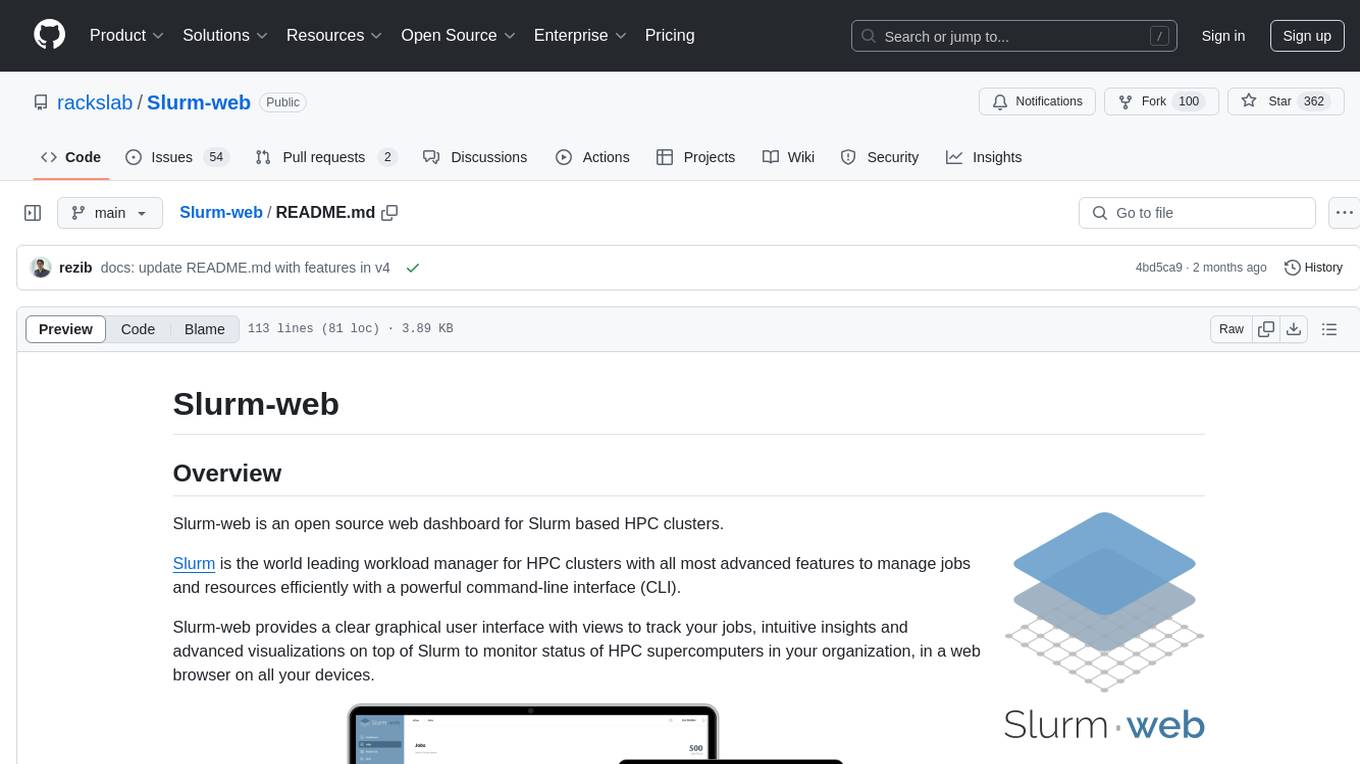
Slurm-web
Slurm-web is an open source web dashboard designed for Slurm based HPC clusters. It provides a graphical user interface to track jobs, insights, and visualizations for monitoring HPC supercomputers. The tool offers features like interactive charts, job filtering, live status updates, node visualization, RBAC permissions, LDAP authentication, and integration with Prometheus for metrics collection.